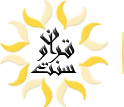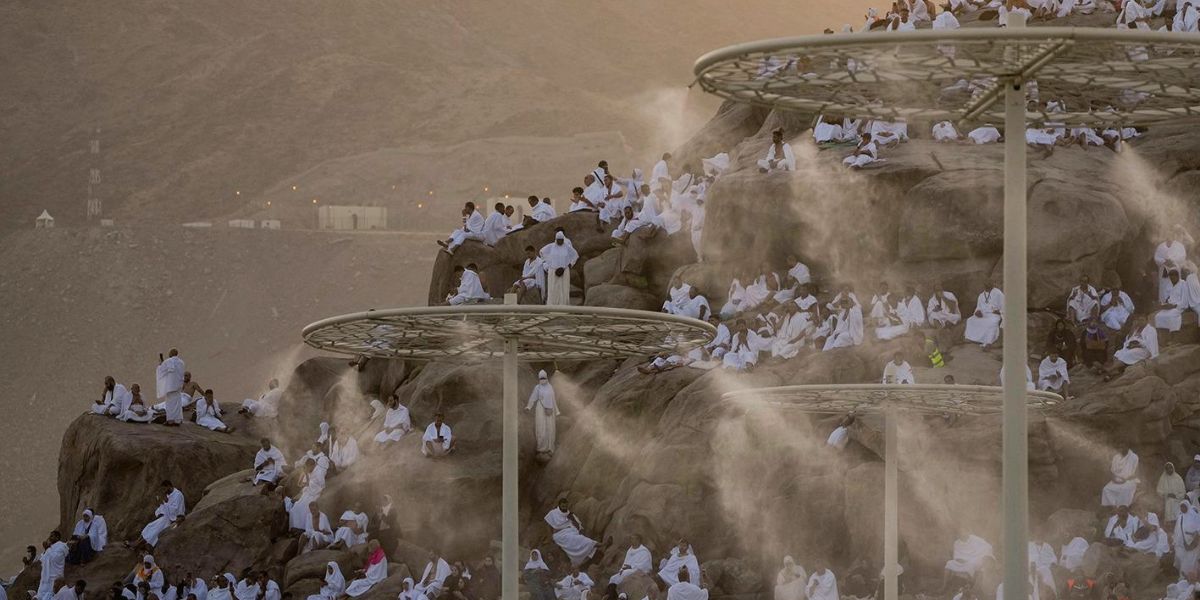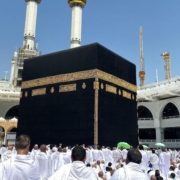Health & Hygiene During Hajj 2025: What Pilgrims Must Know
Performing Hajj is a physically and spiritually intense journey, and taking care of one’s health & hygiene during Hajj, is sacred pilgrimage, is essential. With over a million Muslims from around the world expected to gather in the holy cities, the potential for illnesses, dehydration, and hygiene-related issues increases significantly. For Hajj 2025, new health protocols and awareness have taken centre stage, especially as pilgrims navigate the challenges of heat, crowd density, and personal cleanliness in a post-pandemic world.
Guidelines on Using Makeup Products After Hajj
After performing Hajj, the restrictions of Ihram are lifted, and pilgrims return to their normal state. This means that using makeup products after completing Hajj is generally permissible, provided the following conditions are met:
Ihram Must Be Completely Ended
- Once all the rituals of Hajj are completed, including Tawaf al-Ifadah and shaving/trimming the hair (for men) or shortening the hair (for women), the state of Ihram ends.
- After this, the prohibitions related to Ihram, including the use of perfumes, scented products, and makeup, are lifted.
Use of Halal and Permissible Products
- Ensure that makeup products are free from haram ingredients such as alcohol, pork-derived substances, or impure chemicals.
- Halal-certified makeup brands are preferable for those who wish to maintain Shariah-compliant standards.
Modesty Should Be Maintained
- Islam encourages modesty, especially in public settings. If makeup is worn in private settings or among mahram relatives, it is permissible.
- When going out in public, especially in the holy cities of Makkah or Madinah, makeup should not be flashy or attract unnecessary attention.
Important Considerations for Women Pilgrims
Makeup is not allowed during Ihram, but after exiting Ihram completely, it becomes allowed with the above-mentioned conditions. Using makeup during Tawaf al-Ziyarah or other rituals while still in Ihram is not allowed, even if the Hajj is nearly complete. After Hajj, many women want to celebrate and look presentable this is fine as long as it aligns with Islamic principles of modesty.
Modern Health Risks and Preventive Measures
Due to the intense heat of Saudi Arabia, especially during summer months, heatstroke, dehydration, and exhaustion are common concerns. Pilgrims are advised to stay hydrated, rest when needed, and avoid prolonged sun exposure.
Moreover, with global travel and mass congregation, the risk of respiratory illnesses, flu, and other contagious infections rises. Saudi authorities, in collaboration with international health organisations, have implemented updated health checks and guidelines to mitigate such risks during Hajj 2025.
Essential health precautions for all pilgrims include:
- Carry necessary vaccinations (especially for meningitis, flu, and COVID-19 as per Saudi guidelines)
- Wear face masks in crowded areas to prevent airborne infections
- Use hand sanitiser frequently, especially after touching shared surfaces
- Stay hydrated and consume balanced meals to maintain energy levels
- Avoid overexertion by planning rituals strategically throughout the day
Personal Hygiene Practices Every Pilgrim Should Follow
Maintaining personal hygiene is both a physical and spiritual responsibility in Islam. During Hajj, when access to private restrooms or showers may be limited, staying clean becomes even more crucial. Pilgrims should bring essential hygiene items and follow Islamic cleanliness guidelines (taharah) to protect themselves and others from discomfort or illness.
Key hygiene habits for Hajj pilgrims:
- Use fragrance-free soaps and wipes to maintain cleanliness while adhering to the ihram conditions
- Trim nails and keep hands clean to prevent the spread of germs
- Change into fresh, clean clothing regularly (as per the limits of the ihram rules)
- Dispose of waste properly and avoid littering in public spaces
- Maintain oral hygiene with a miswak or toothbrush
Medical Facilities and Emergency Care in 2025
The Saudi Ministry of Health has strengthened medical services for Hajj 2025. Multiple clinics and mobile medical units are stationed across Mina, Arafat, and Muzdalifah. Emergency response teams are equipped with modern tools and translation support for international pilgrims. Pilgrims are encouraged to note down the locations of these facilities and carry their medical records, prescriptions, and ID at all times.
Conclusion
Prioritising health and hygiene during Hajj 2025 is not only about personal well-being but also about fulfilling the pilgrimage in a way that is respectful to others and in line with Islamic values. Responsible preparation, awareness of health risks, and adherence to hygienic practices can ensure a safer, spiritually enriching Hajj experience. Al-Madina Travel Services, a leading name in Hajj and Umrah organisation, offers comprehensive guidance and support for all health and hygiene needs during your pilgrimage.
Let your Hajj journey in 2025 be remembered not just for its rituals, but for the care and discipline that safeguarded your health throughout.












Leave a Reply
Want to join the discussion?Feel free to contribute!